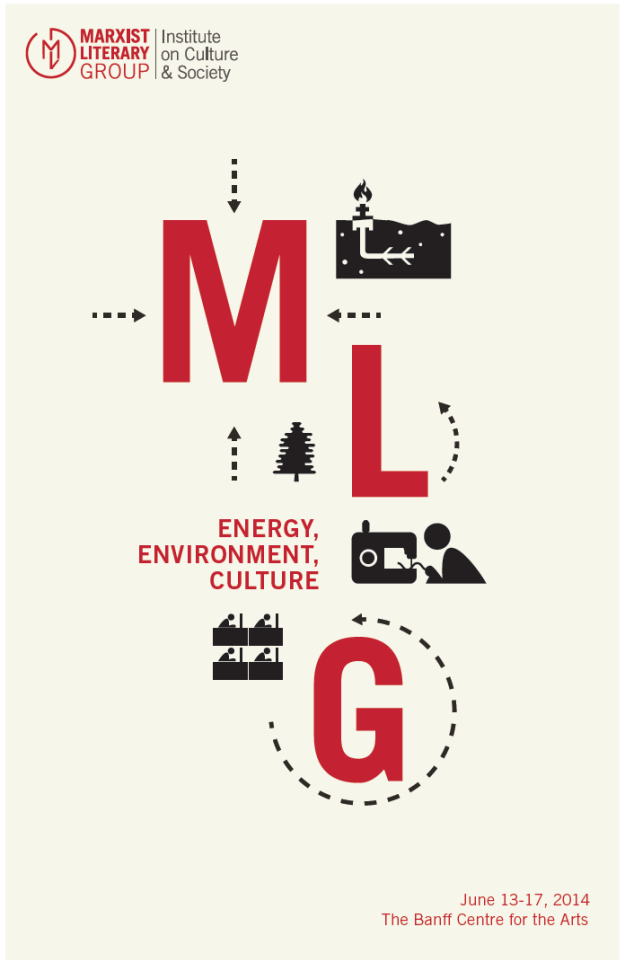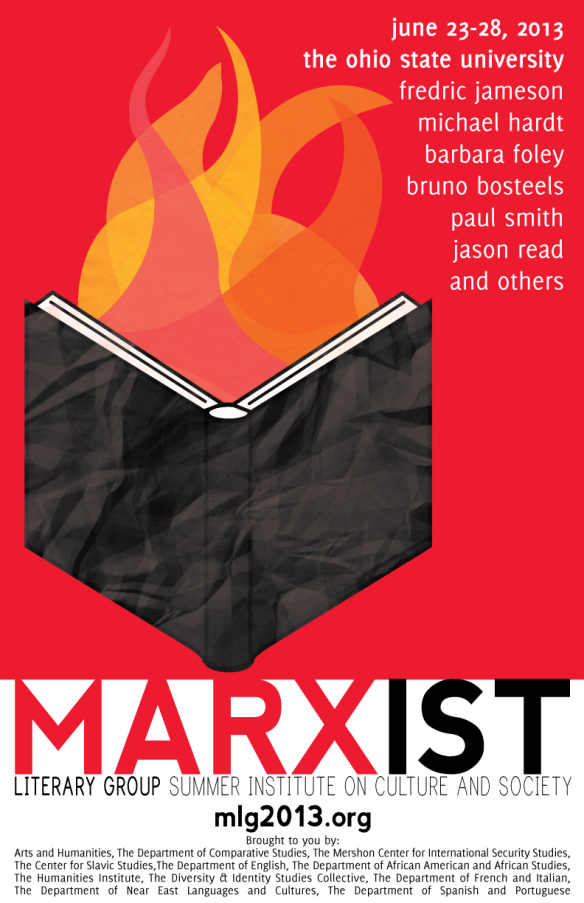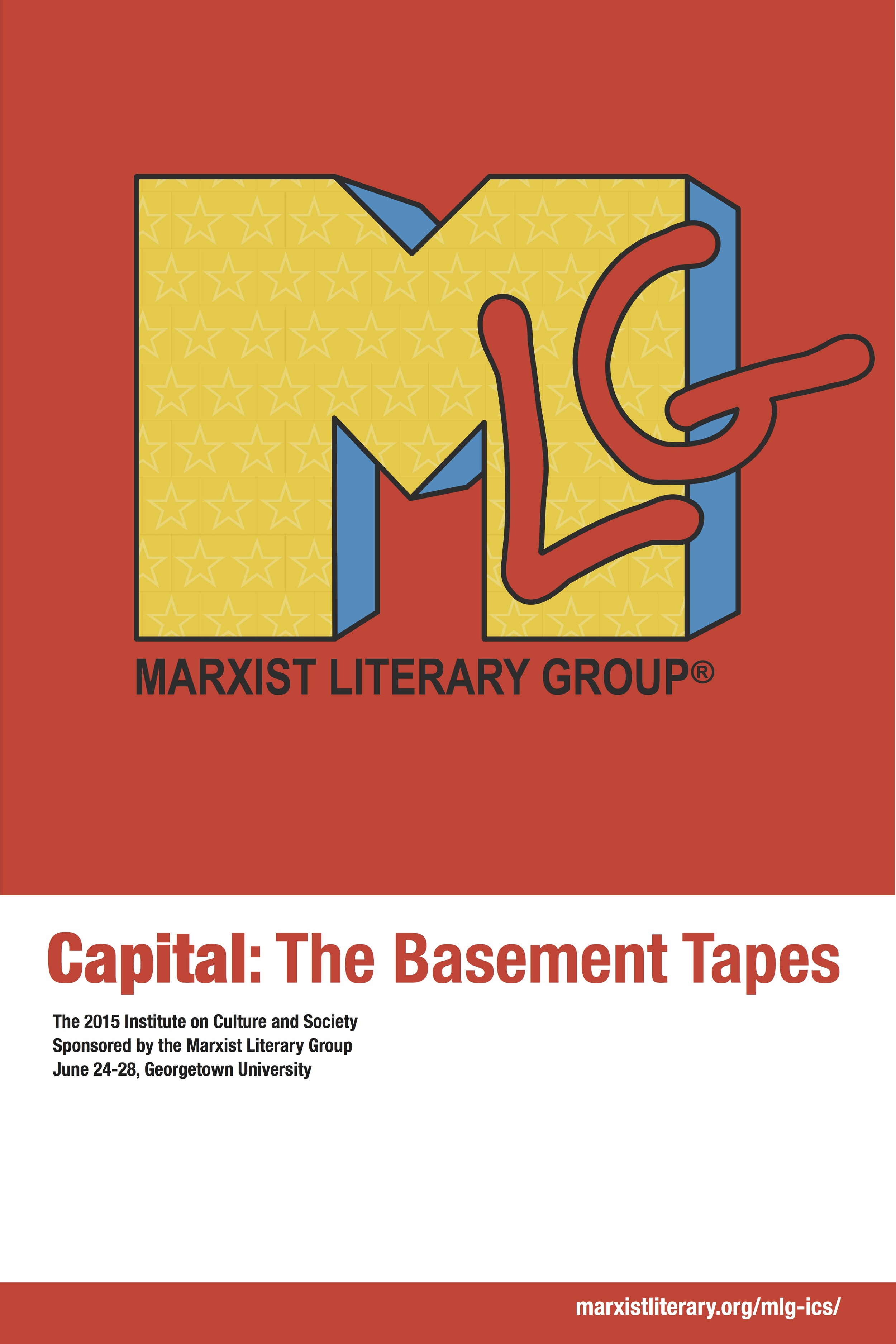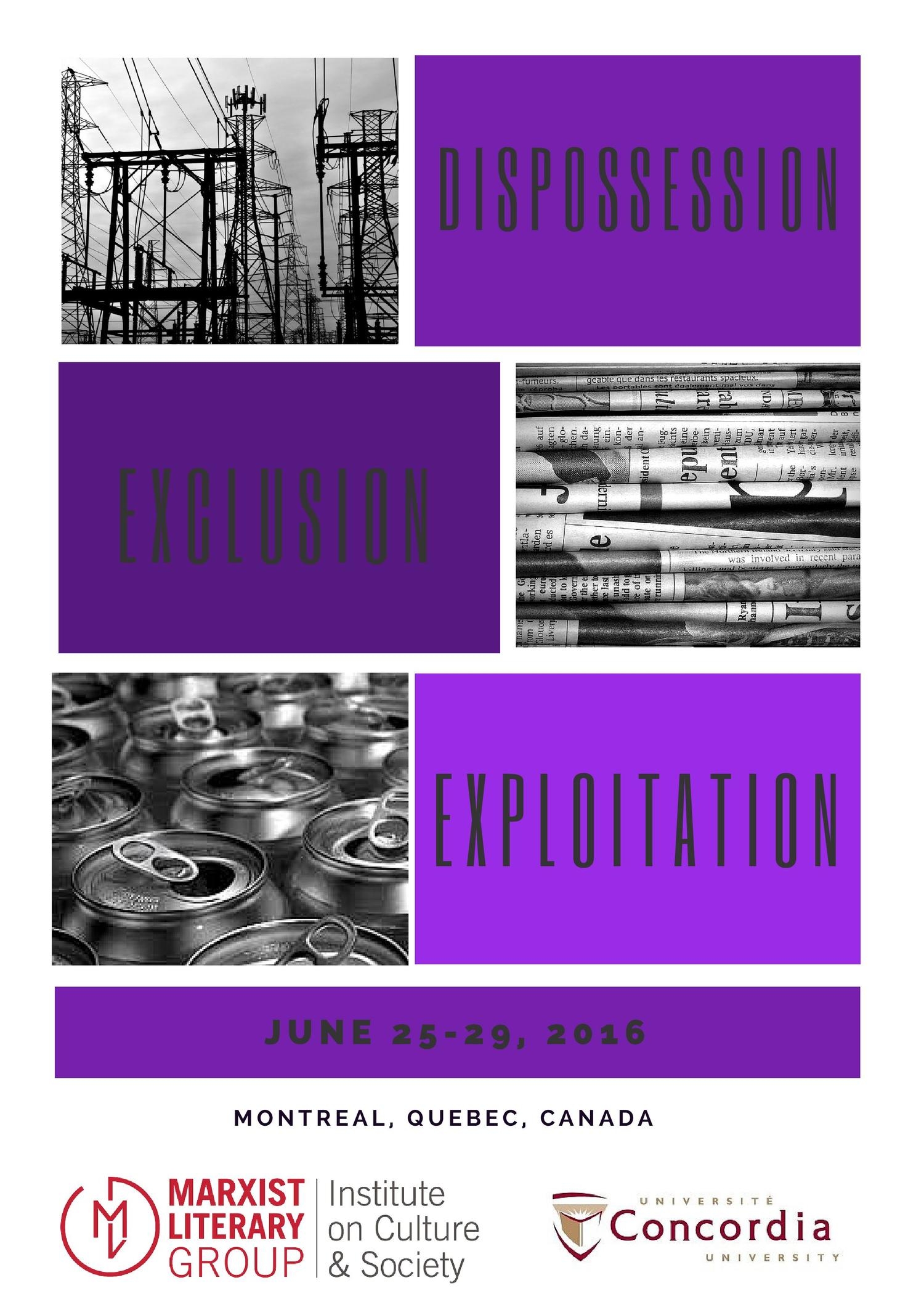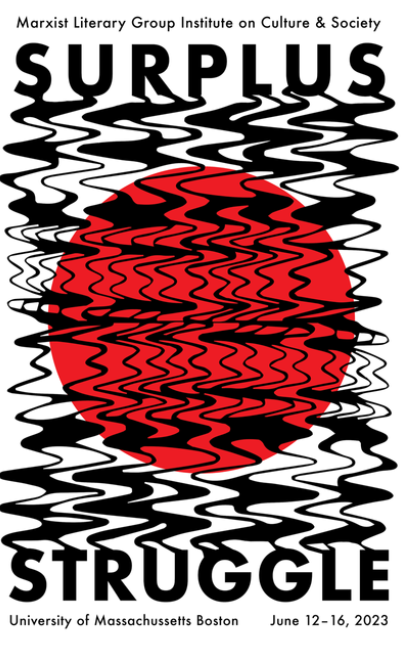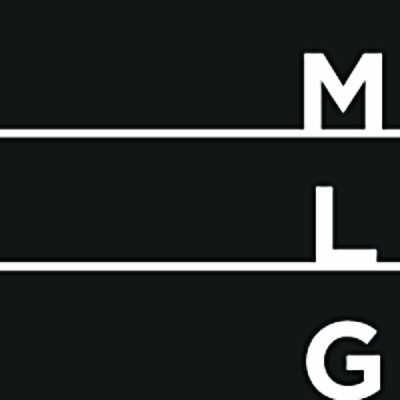The Marxist Literary Group’s Institute on Culture and Society 2025
June 17-21
johns hopkins university
marx in the rightward turn
In The 18th Brumaire of Louis Bonaparte, Marx sets out to “demonstrate how the class struggle in France created circumstances and relationships that made it possible for a grotesque mediocrity to play a hero’s part.” Though these words offer a prophetic description of a whole range of figures on the contemporary American right, Marx’s analysis of the class forces at play in the French 1850s reaches much further than the problem named by Bonapartism. How do Marx’s political writings and his critique of political economy give us a model for thinking about the relationship between rightist politics and capitalist accumulation more broadly? ICS 2025 will ask: how do we build a strong, clear anticapitalist analysis that links the many varieties of right-wing authoritarianism on the rise in the 2020s? MAGA racism, misogyny and transphobia; Netanyahu’s ongoing genocide against the people of Palestine; Putin’s attempted annexation of Ukraine; Modi’s giving license to anti-Islamic violence; Orban’s antisemitism, and on and on – how can Marxist tools help us find their common thread?
Special Stream: The Legacy of Fredric Jameson
If the global rightward turn demands attention to class analysis, it also calls out for the kinds of research conducted in literary studies, with its capacity for taking seriously but also socially situating lived experience. ICS 2025 will also take the occasion of the passing of the great Fredric Jameson to ask how his work, and the work of Marxist literary criticism, can be of use in clarifying the kinds of confusion so many feel when confronting the end of the “liberal international order.” What stories can we no longer tell about the relationship between literature and politics? What kind of thing are we witnessing? What new world is emerging? What can we compare it to? Questions of narrative, genre, periodization, metaphor: Jameson’s vast body of work offers a valuable archive – much of it underutilized – for developing 21st-century Marxist answers to these questions. If literary criticism in general is well-equipped to frame these questions, Marxist literary criticism in particular holds out the promise of grounding them in a strong, coherent frame.
ICS Reading groups
One of the defining characteristics of MLG Institutes is our reading groups, related to each year’s theme, where shared texts are circulated in advance, and one or more participants facilitate a seminar-style discussion of the readings with Institute participants. Seminal texts from the Marxist tradition are welcome, as are contemporary critical engagements. Reading groups should focus on a single text of no more than 50 pages, or one longer text broken up over multiple reading groups. We would like to have at least one (but happily two) reading groups per day.
Suggested themes include (but are not limited to):
What is to be done? Political organization (and disorganization) on the left
Marx’s political writings
Genocide and its denial in Palestine
Political economies of anti-immigrant violence and racism
So-called “culture wars” and their revival: book-banning, “free speech,” university policies
Gender panics and anti-trans violence
Comparative analysis of right-wing class politics
Afterlives of anticommunism on the contemporary right
Downward turns: declining profits and authoritarian politics
Speculative bubbles: AI, land grabs
Tech-world rightism
Media, spectacle, the politics of attention and distraction
Genre and its limits: framing (anti-)capitalist politics through tragedy, farce, and beyond
Suggested themes around the work of Fredric Jameson:
“Periodizing the 60s” and periodizing the decades since
Postmodernism: What is a “cultural logic”?
Years of Theory: post-structuralism in the rear-view mirror
Archaeologies of The Future: utopian thinking today
Valences of The Dialectic: versions of dialectical thinking in Jameson, Marx, and Hegel
The Political Unconscious: Marxism as “untranscendable horizon” for other theoretical models
Marxism and Form: the dialectic of form and content; how do we model it in the classroom?
Submission Guidelines
1. You may submit a proposal for one of the following: a panel, a reading group, or a roundtable. To maximize participation, we will only offer each person one slot on the program. Proposals for panels, reading groups, and roundtables should provide a 300-word abstract; proposal for panels should also include a 100-word descriptions of each paper. Proposals for individual papers should be 200 words long.
2. Please include your academic affiliation (if applicable) and job title (if applicable) in your submission.
3. Our expectation at MLG-ICS is that attendees attend as many days and sessions as possible. We hold no concurrent sessions, and the group conversation builds collectively over the course of the week. Every comrade who presents deserves a full audience.
4. All MLG-ICS conferences are themed, but we will consider proposals on all aspects of Marx and Marxism.
5. Panel submissions should be for 4-5 people; roundtable submissions should be for 5-8. Please commit to having all listed panel members attend the conference.
Submit proposals for individual papers, panels, roundtables, or reading groups to mlgics2025@gmail.com by March 1, 2025.
Accommodations:
On-campus conference housing is unavailable at Johns Hopkins for this June. The JHU summer housing office has negotiated a reduced rate for conference attendees at The DoubleTree Inn at The Colonnade, across the street from campus, for June 16-21, and they are now taking room reservations for the summer at a rate of $179/night. Reservations are made by you, directly with the hotel. Most of the rooms are doubles with two queen bed, designed to be shared. Singles with King beds are available as well, for the same rate per night. The link for reservations is here:
The deadline for reduced-rate room reservations is May 16, 2025.
Schedule Schedule-graph Reading Groups/material Meeting Location Merch BBQ
Previous Institute Posters
